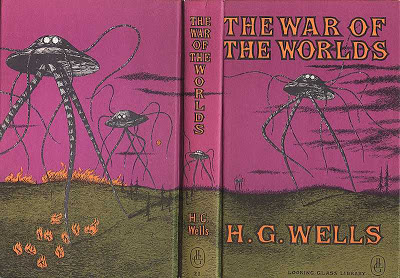Monday, June 17, 2013
On Adventuring in Science Fiction: Back to the Future and Jules Verne
I was watching Back to the Future 3 the other day and it got me wanting to read some classic science fiction. More specifically it got me wanting to read some Jules Verne. It's not just that his name comes up a few times in the film, but it's what I think Zemeckis and Gale felt when dreaming up the science in their story. I think they felt the same sense of adventure at exploring the unknown as you feel when you open one of Verne's novels.
If you've ever read Verne, you'll know what I meant when I said "dreaming." His stories embody a romantic fascination with possibility, with discovery, with exploring the unknown. They're a different kind of science fiction than the kind where the characters discover the unknown and then destroy it under relentless firepower and vorpal death. Or the kind where the opposite happens. It's not like they're without conflict, but I'd say thinking 20,000 Leagues Under the Sea is about exterminating sea monsters would be missing the point.
Back to the Future has so much in common with the science fiction Jules Verne was writing. Verne's stories look to the unknown with wonderment; they look to the depths of the ocean, the center of the earth, and then all the way around it with an earnest fascination and sense of adventure. I feel like this is an approach to science fiction that not all writers can accomplish in their work because they just don't feel it in their hearts. It may be that you have to love not just science, or science fiction, but also adventure and discovery. It seems very child-like to me, like building a fort or camping out in your own backyard while feeling that you're in the middle of the forest.
I'm not nostalgic for classic science fiction. It's not like "back in the day" people wrote more fantastic, adventurous sci-fi. Look at H.G. Wells and his excellent, classic work. War of the Worlds contains scenes that bear war genre conventions and The Time Machine dips into the conventions of horror and post-apocalyptic fiction. Much of his work is not about adventure or feeling the thrill of exploration. It proposes scientific discovery and examines the limits of human morality. It's a very different kind of science fiction.
Obviously Zemeckis and Gale weren't trying to predict the course of scientific progress, as cool as it would be if the first time machine really were a DeLorean. And they weren't guiding scientists the way Arthur C. Clarke was. However the work they did bears great resemblance to Verne's, with them exploring time in a way that makes the reader feel ten years old again; Doc's words, not mine.
Verne, Wells, Clarke, Zemeckis, Gale and many, many others have written science fiction and they have all got their own perspective on what can be done with their genre. Part of the appeal to science fiction is the variety that comes along with it. And how well other genres blend into it. I don't know what Zemeckis and Gale saw in time travel that compelled them to write about it, but I think the ease with which I can watch and rewatch their films is testament to them feeling something very deeply. I found myself wondering after the film what that might have been. And how Verne must have felt when writing about what could be at the center of the earth at a time when no one had any idea. Well now there isn't a fun mysterious center to write about and people are writing about other planets. Other times. Other dimensions. When we have solved those mysteries (assuming they even can be solved), what will people be dreaming about? What adventure will there be for people to sense, what unknown for us to explore, and what will we be writing about it?
Labels:
Analysis,
Fiction,
Non-40k,
Random Thoughts,
Writing
Subscribe to:
Post Comments (Atom)



No comments:
Post a Comment